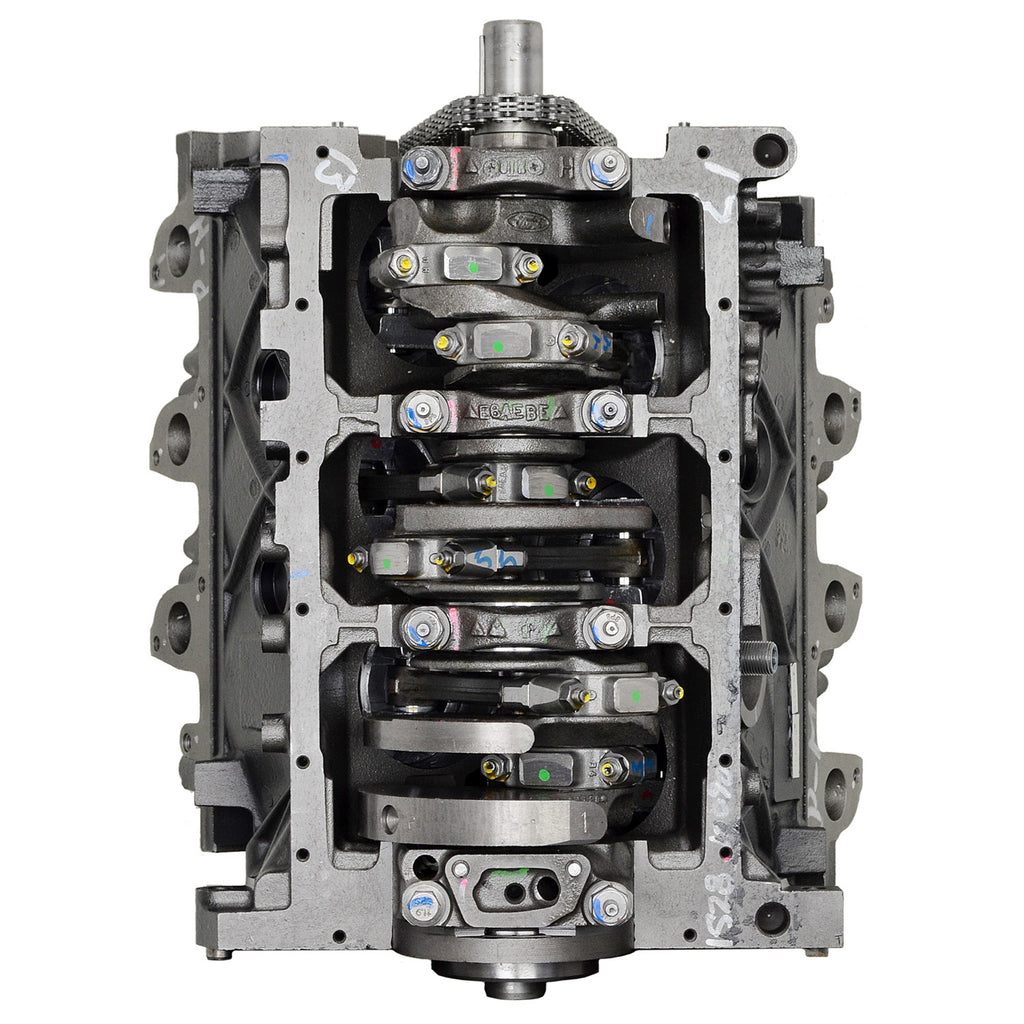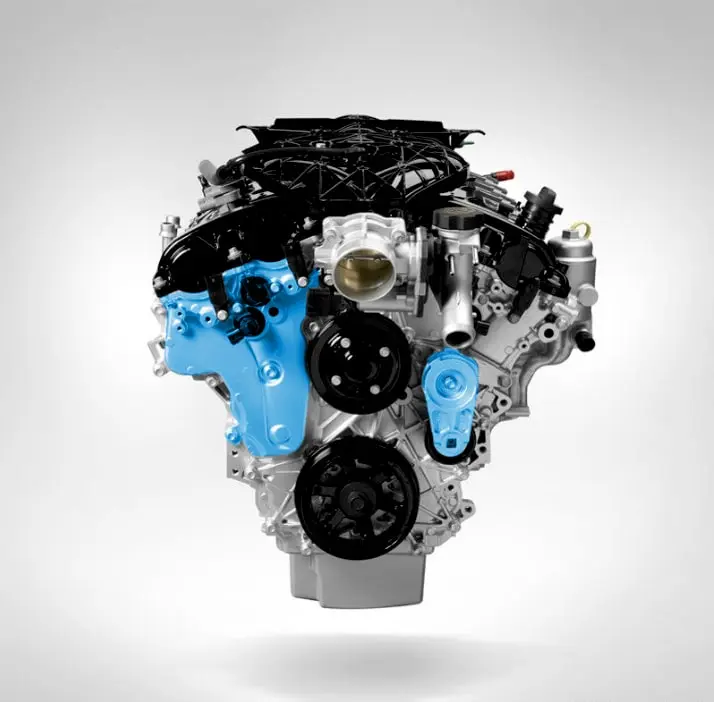How the 2.2 Ford Ranger Engine Stands Out for Durability and Power in Tough Conditions
How the 2.2 Ford Ranger Engine Stands Out for Durability and Power in Tough Conditions
Blog Article
Exactly How to Select the Right Cars And Truck Engine for Maximum Performance and Effectiveness
Picking the proper cars and truck engine to achieve an optimum balance of performance and performance requires a nuanced understanding of different engine kinds and their specific characteristics (2.2 ford ranger engine). Aspects such as engine variation, the number of cyndrical tubes, and gas kind play a pivotal role in figuring out both power result and gas economy.
Recognizing Engine Kind
When selecting an auto, among the most vital components to consider is the engine kind, which works as the heart of the vehicle. The engine type dramatically affects the auto's total efficiency, long life, and viability for your driving requirements. There are mostly three engine types to consider: internal burning engines (ICE), hybrid engines, and electrical engines.
Inner burning engines continue to be one of the most common, running on gasoline or diesel. They are recognized for their power and acceleration, making them appropriate for performance-oriented cars. Nevertheless, they might fall short in gas effectiveness and environmental influence.
Hybrid engines combine an internal combustion engine with an electrical motor, offering a balance in between performance and gas economic situation. They are increasingly prominent for chauffeurs looking for minimized emissions while still supplying sufficient power.
Electric engines, powered entirely by batteries, are acquiring traction as a result of their ecological benefits and reduced running prices. They supply instantaneous torque and a quiet driving experience, making them optimal for metropolitan travelling.

Efficiency vs. Performance
Picking the ideal engine kind involves weighing the trade-offs between efficiency and effectiveness. Efficiency normally describes exactly how well an engine can deliver power and velocity, which is typically related to larger variation engines or those with turbocharging capabilities. These engines normally provide thrilling driving experiences and quick feedback times, making them popular among lovers.
On the various other hand, efficiency concentrates on gas economy and reduced emissions. Smaller engines, specifically those geared up with sophisticated modern technologies such as direct fuel injection and variable shutoff timing, tend to provide far better miles per gallon and reduced carbon footprints. While these engines may compromise some power contrasted to their bigger counterparts, they often master day-to-day driving scenarios where high performance is not always required.
Inevitably, the choice between performance and efficiency joints on specific top priorities. A vehicle driver who values perky driving might focus on a high-performance engine, while a person seeking cost-efficient commuting might favor an effective alternative. Understanding these trade-offs is crucial for making an educated decision that aligns with your driving demands and way of living, making sure that the selected engine type enhances your assumptions for both performance and performance.
Key Specs to Consider
Comprehending essential specs is crucial for making an informed choice regarding the appropriate car engine. When picking an engine, several critical factors warrant consideration to make certain optimum performance and efficiency.
Firstly, engine variation, determined in litres or cubic centimeters, is a critical requirements. It suggests the total quantity of the engine's cylinders and usually article source correlates with power output; bigger variations commonly generate more power. Next, the number of cyndrical tubes plays a significant role in performance features. Engines with more cyndrical tubes can supply smoother procedure and higher power, while smaller sized configurations can enhance fuel effectiveness.
Additionally, the engine's setup, whether inline, V-type, or rotating, affects the overall layout and efficiency characteristics of the car - 2.2 ford ranger engine. Turbocharging and turbo charging innovations must also be assessed; these increase an engine's power outcome without substantially raising its size, therefore boosting effectiveness
Gas type is another vital consideration, as it impacts both efficiency and prices. Lastly, the engine's compression ratio influences performance and power shipment; a higher ratio generally brings about better performance, however might need superior gas. By thoroughly examining these requirements, you can pick an engine that straightens with your efficiency and performance goals.
Reviewing Driving Needs
Assessing driving needs is a basic action in identifying the ideal cars and truck engine for your lifestyle and use patterns. Begin by evaluating your day-to-day driving habits, consisting of the regularity and duration of journeys. If your driving primarily contains brief commutes in city atmospheres, a smaller engine with good gas performance may suffice. Alternatively, if you regularly embark on long-distance journeys or call for towing capacities, a much more powerful engine may be necessary.
Think about the terrain you generally browse. Hilly or sturdy landscapes might require an engine with greater torque for much better performance. In addition, show on traveler and cargo requirements; larger households or those that transfer products might take advantage of lorries with boosted power and capacity.
Diesel engines typically use superior torque and gas economic climate for much heavier automobiles, while gas engines may give a smoother and quieter adventure. Element in environmental factors to consider, as crossbreed or electrical engines can give a more sustainable alternative without sacrificing efficiency.
Future Trends in Engine Modern Technology
As the automotive sector proceeds to progress, developments in engine technology are paving the means for a lot more effective Get the facts and sustainable driving experiences. One significant trend is the shift towards electrification, with hybrid and fully electrical powertrains acquiring prestige. Car manufacturers are spending heavily in battery modern technology to improve energy thickness and decrease billing times, eventually improving the practicality of electrical cars (EVs)
Another arising pattern is the development of hydrogen gas cell engines. 2.2 ford ranger engine. These systems provide the possibility for zero-emission driving while supplying refueling times comparable to typical gas engines. In addition, innovations in combustion see this technology, such as variable compression ratios and boosted turbocharging, are enhancing traditional internal combustion engines for much better effectiveness and efficiency
Digital assimilation is likewise an important element of future engine technology. The execution of man-made intelligence and maker knowing allows for real-time information analysis, allowing smarter engine administration systems that adapt to driving conditions and boost gas effectiveness.

Final Thought
In verdict, choosing the proper car engine requires a thorough assessment of different variables, including engine type, performance demands, and effectiveness objectives. By comprehending the distinctions in between various engine kinds and taking into consideration key specs, individuals can straighten their options with particular driving requirements. As improvements in engine modern technology remain to arise, continuing to be educated concerning future fads will certainly further enhance decision-making, ultimately resulting in a car that balances performance and fuel effectiveness efficiently.
Choosing the ideal car engine to achieve an ideal equilibrium of performance and performance demands a nuanced understanding of numerous engine types and their details qualities. There are primarily three engine kinds to consider: interior burning engines (ICE), hybrid engines, and electrical engines.
Performance typically refers to exactly how well an engine can deliver power and acceleration, which is frequently connected with larger displacement engines or those with turbocharging capabilities. Diesel engines frequently offer superior torque and fuel economy for heavier lorries, while fuel engines might give a smoother and quieter adventure.In final thought, selecting the appropriate automobile engine necessitates a comprehensive analysis of various variables, consisting of engine type, performance needs, and performance objectives.
Report this page